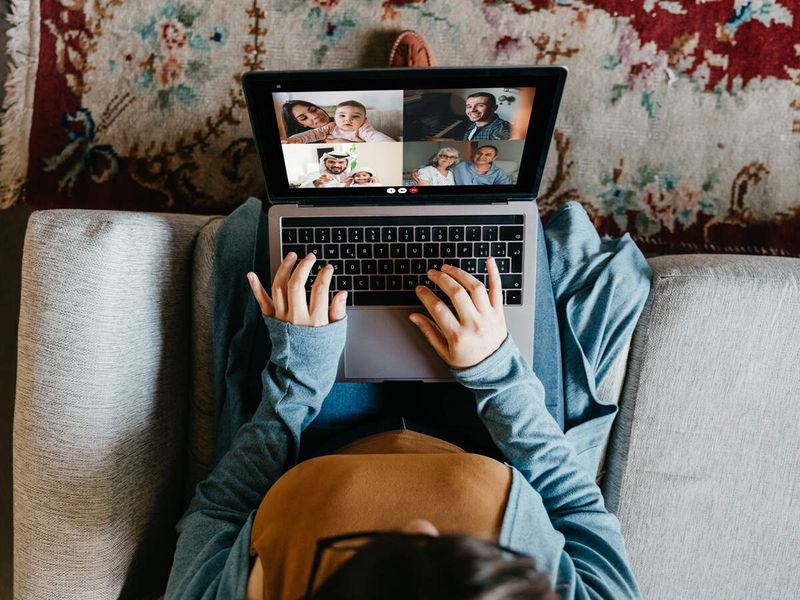In a world where popular opinions often dominate discussions, there are those rare hot takes that defy conventional wisdom yet hold a kernel of truth. These 14 unpopular opinions challenge the status quo, sparking debates that might just make us reconsider our viewpoints. Whether they revolve around technology, culture, or lifestyle choices, these opinions provoke thought and encourage us to see things from a different perspective.
1. Social Media is Overrated

Is being constantly connected really fulfilling? Many argue it creates more isolation than it solves. Social media, although a platform to bridge distances, often replaces genuine interactions with superficial connections.
People who step back from it often find themselves more present in their real lives. The endless scrolling through curated feeds can sometimes lead to dissatisfaction, rather than inspiration. Disconnecting occasionally can foster deeper connections in reality, offering a refreshed perspective. Perhaps, prioritizing face-to-face dialogue over digital exchanges may be the key to more meaningful relationships.
2. Fast Food is Underrated

While fast food often bears the brunt of nutritional critiques, it does serve a practical purpose. Busy lifestyles demand quick meal solutions, and fast food satisfies this need efficiently.
Nutritional options are expanding, with many chains now offering healthier choices to cater to a growing health-conscious clientele. For some, these affordable meals provide a rare opportunity to indulge in the flavors of different cultures without breaking the bank. Fast food might not be gourmet, but it certainly meets a need with variety and convenience.
A quick bite can sometimes be a delightful treat rather than a dietary blunder.
3. Traditional Education Limits Creativity

The structured environment of traditional education can sometimes stifle the creative spirit. By focusing heavily on standardized testing and rote memorization, students may lose the opportunity to explore their imagination.
This system often values conformity over individuality, leaving little room for artistic expression. Encouraging critical thinking and problem-solving through alternative methods could foster a new generation of innovative thinkers. There’s a growing belief that more flexible, student-centered learning might nurture creativity better.
Educational reform could unlock untapped potential by supporting diverse learning styles and talents.
4. Remote Work Enhances Productivity

Does the office really boost productivity? Many find the flexibility of remote work refreshing. Without the daily commute, workers save time and reduce stress, leading to increased job satisfaction.
The ability to create a personalized workspace means fewer distractions and greater focus. For some, the comfort of home fosters a more productive environment than the bustling office. Remote work also promotes work-life balance, which can lead to happier employees. As businesses adapt to this trend, they might discover that remote work is more than just a temporary solution.
A permanent shift could be on the horizon.
5. Movie Remakes Can Be Better Than Originals

Originals often become classics, but does that mean remakes are inferior? Some argue that remakes capture the essence while bringing modern storytelling techniques and technology.
Reimagining stories for a new audience can breathe fresh life into them. Filmmakers have the chance to address past critiques and enhance the narrative, making it more relatable for contemporary viewers. Occasionally, remakes surpass their predecessors by offering a new perspective or improved special effects. For movie buffs, this debate is thrilling, proving that remakes deserve a thoughtful reconsideration.
6. Home Cooking is Overpraised

Is cooking at home always the healthier, more satisfying choice? Some find it time-consuming and stressful, opting instead for high-quality meal services or dining out.
With the rise of gourmet delivery options, the convenience of having diverse, expertly-prepared meals at your fingertips is enticing. People might prefer spending time on other activities rather than laboring over a hot stove. It’s not necessarily about avoiding cooking altogether but recognizing that home-cooked meals aren’t the only path to a satisfying diet.
Sometimes, convenience and quality go hand in hand.
7. Books Aren’t Always Better Than Movies

The age-old debate of book versus movie continues to divide fans. While books offer depth and detail, movies deliver visual storytelling that’s equally compelling.
Films encapsulate emotions and narratives in a way that resonates differently. For many, seeing characters and plots come to life on screen enhances the imaginative experience. The choice isn’t about replacing one with the other but appreciating each medium’s unique way of storytelling. Movies can sometimes bring a new dimension to stories that text alone cannot, making them a worthy counterpart to their literary origins.
8. Minimalism Isn’t for Everyone

While minimalism promotes simplicity, it doesn’t suit every lifestyle. Some find comfort in surrounding themselves with items that hold personal meaning or bring joy.
For many, a space filled with cherished possessions feels more like home. The minimalist trend can seem restrictive, as it emphasizes decluttering and paring down to essentials. Embracing a more maximalist approach allows for self-expression and creativity, which can be equally fulfilling. Happiness may not lie in fewer possessions but in appreciating what truly matters, be it an empty space or a vibrant collection.
9. Technology Disconnects More Than It Connects

Does technology truly connect us? As we embrace digital interactions, we may inadvertently weaken real-world connections. Many find that technology, while innovative, often distances us from face-to-face relationships.
The constant connectivity pressures individuals to be available around the clock, blurring the lines between personal and digital life. While technology has its merits, it can prevent meaningful interactions. Striking a balance between virtual and real-world engagement is crucial. It’s not about abandoning technology but recognizing the importance of nurturing human connections beyond the screen.
10. Luxury Brands Aren’t Worth It

The allure of luxury brands often overshadows practicality. While they symbolize status, they don’t always equate to superior quality or satisfaction.
Many find that high-end fashion comes with hefty price tags but not necessarily the longevity or uniqueness to match. There’s a growing appreciation for affordable, sustainable brands that offer style without compromising ethics or budgets. Investing in quality over a label could lead to more fulfilling wardrobe choices. Fashion-conscious individuals are redefining luxury as a personal statement rather than a brand name.
11. Traditional 9-to-5 Jobs Are Obsolete

The conventional workday may no longer fit modern needs. Many argue for flexible schedules that accommodate personal lifestyles and boost productivity.
The rise of freelancing and startup cultures emphasizes results over routine, allowing individuals to work when they’re most efficient. As technology enables remote work, the traditional 9-to-5 framework appears increasingly outdated. This shift could lead to happier, healthier workers who thrive in environments tailored to their unique rhythms. Work-life balance is evolving, and with it, our understanding of effective work structures.
12. Self-Help Books Overpromise

While self-help books promise transformation, they don’t guarantee results. Some find the abundance of advice overwhelming or too generalized for individual situations.
Though they offer valuable insights, personal growth often requires more than written guidance. Real change involves action, patience, and sometimes, professional support. Self-help books can inspire but aren’t a substitute for personalized strategies or therapy. Readers might benefit more from a balanced approach, combining book wisdom with personal experience and expert advice. A mindful selection of resources could enhance the journey to self-improvement.
13. Online Friendships Can Be As Valuable As Offline Ones

Can online friendships rival those made in person? Many find that digital connections can be as fulfilling as traditional ones, offering support and companionship.
With the ability to connect across distances, online friends can share experiences and emotions just as deeply. The internet fosters communities where people find acceptance and understanding, often more than in their local environments. It’s not about replacing in-person bonds but expanding the definition of friendship. In a globalized world, online connections provide a richness and diversity of relationships that transcend geographical boundaries.
Hi all, I am Sidney, an accountant, a hobbyist photographer, and a mother to two sweet girls who are my motivation. I love sharing the tips and tricks I gained all these years I’ve been a mother. I hope it will help you!

